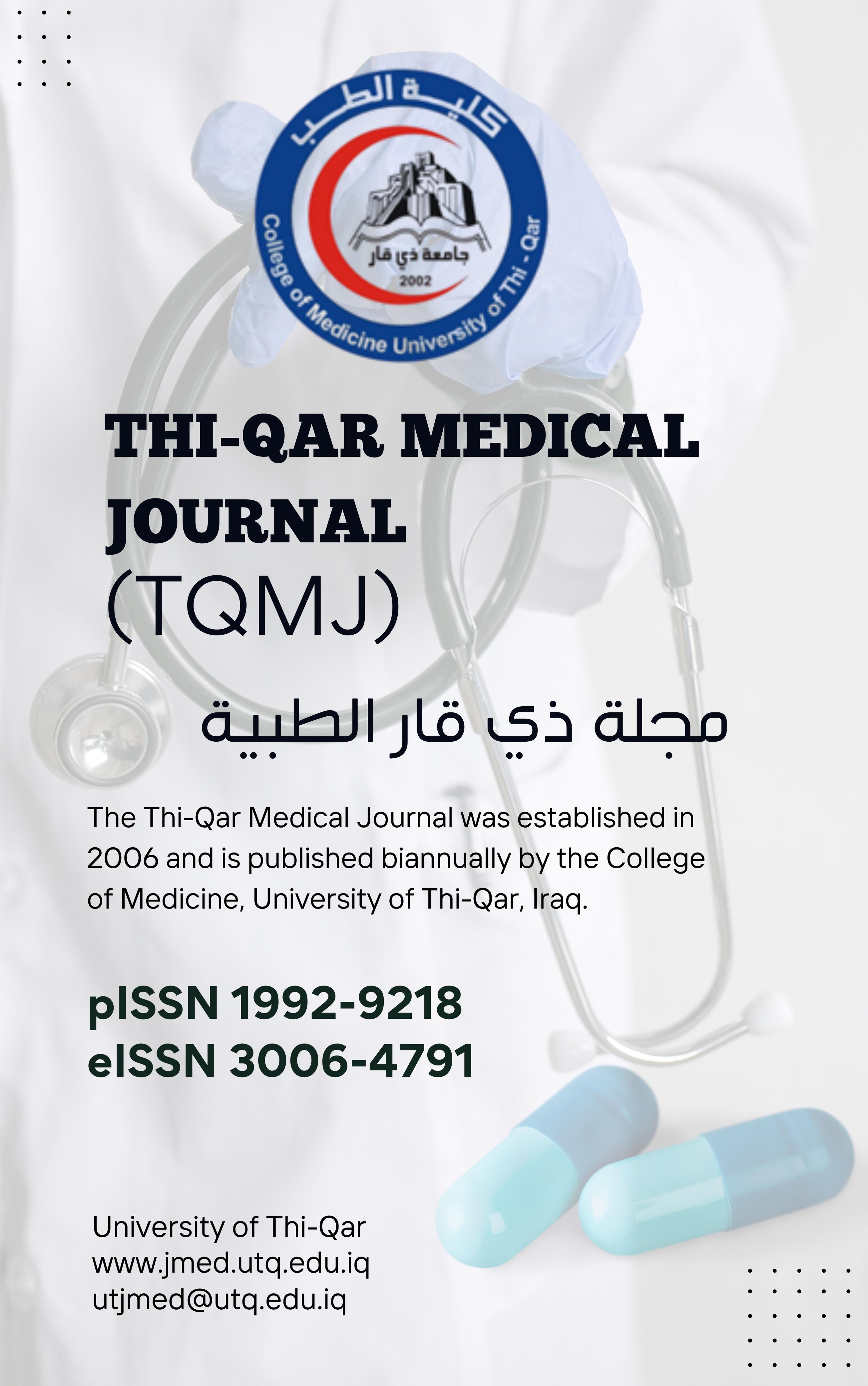Evaluating Student Satisfaction of Educational Program Aspects in University of Thi-Qar / College of Medicine Using Questionnaire Analysis
DOI:
https://doi.org/10.32792/tmj.v25i1.479Abstract
Objectives: In order to evaluate the educational program of medical sciences in Thiqar College ofMedicine as part of this program evaluation process, we designed a student questionnaire based on a
definition of quality teaching of basic & clinical sciences and to identify its underpinning
dimensions. The study aims to survey the opinion of samples of students, graduates, and lecturers
about some of the specifications required in the curriculum and the academic program that meets
the requirements of accreditation by Iraqi (national standards for accreditation of medical colleges)
(NCAMC)
Subjects:
A total of 338 individuals (undergraduate students of four stages, graduates and lecturers), asked to
rate 17 of scientific and skill improving aspects questions about taken curriculum and followed
educational program.
Materials and methods:
the questionnaire was administered during the regular class period of 2018/2019 academic year. At
the time of the evaluation, officially authorized staff of evaluated activities weren't there.
Results:
Three identifiable parts involved on the questionnaire: instructional techniques, learning
evaluation, ethics, and response capability. About 22% of the respondents felt that basic science
courses lacked clinical relevance. The evaluations of the students' sufficient knowledge and clinical
and professional skills to assume appropriate responsibility after graduation weren't particularly
positive (48.2% negative). Exposure to several activities was rated by respondents as being
inadequate (student- centered teaching, critical thinking & lifelong training, training in PHCC,
community clinics, rural hospitals, on common transient conditions, knowledge about new
technologies…etc) by percentage ranged between 42.4% and 60.9%
Conclusions:
The faculty must address various parts of current educational program in order to successfully and
efficiently train students for clinical work. This survey can be used as a tool to identify curriculum
trends and the effects of current program revision initiatives in our college of Medicine.
References
Kothari D, Gourevitch MN, Lee JD, Grossman E, Truncali A, Ark TK, et al. Undergraduate medical
education in substance abuse: A review of the quality of the literature. Acad Med. 2011; 86:98-112.
Mukhopadhyay S, Smith S. Curriculum evaluation from the trainees' perspective: application to the
ALWP ATSM. J Obstet Gynaecol. 2010; 30:795-799.
Jiangsu Education. National program of evaluating index for elaborate courses (undergraduate
education). 2010 [cited 22 February 2010]; Available from:
http://www.ec.js.edu.cn/art/2010/2/22/art_4267_30294.html.
Zhang J. Curriculum assessment: Australia, England teaching quality assurance of new trends. China
Higher Education. 2007; 22:62-63.
Sheets KJ, Anderson WA, Alguire PC. Curriculum development and evaluation in medical
education. Gen Intern Med. 1992; 7:538-543.
Lockwood MD, Tucker-Potter S, Sargentini NJ. Curricular analysis of competency-based
osteopathic medical education: application of a matrix for quality enhancement to a standardized patient
encounter example. Am Osteopath Assoc. 2009; 109:486-500?
Mohammad Jalili, Azim Mirzazadeh, Apameh Azarpira. A Survey of Medical Students’ Perceptions
of the Quality of their Medical Education upon Graduation Annals Academy of Medicine. December 2008,
Vol. 37 No. 12
Iraqi National Guideline on Standards for Establishing and Accrediting Medical Schools. January -
National standards for accreditation of medical colleges 2018
10- Kassebaum, D. G., Cutler, E. R., Eaglen, R. H., Falvo, D. R., & Weiss, K. B. (2016). The road to
reform: Reflections on the past, present, and future of American medical education. Academic Medicine,
(9), 1252-1256.
11-Kiguli-Malwadde, E., Olapade-Olaopa, E. O., Kiguli, S., Chen, C., Sewankambo, N. K.,
Ogunniyi, A. O., ... & Iputo, J. E. (2011). Competency-based medical education in two Sub-Saharan African
medical schools. Advances in Medical Education and Practice, 2, 69-72
Downloads
Published
Issue
Section
License
Copyright (c) 2024 University of Thi-Qar Journal Of Medicine

This work is licensed under a Creative Commons Attribution-NonCommercial-NoDerivatives 4.0 International License.




